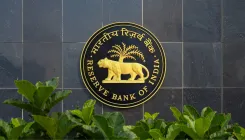Is Mental Well-being the Key to Curbing Heart Disease in India?

Synopsis
Key Takeaways
- Mental well-being is essential in preventing heart disease.
- Shift from treatment to preventive health behaviors.
- Schools play a transformative role in promoting healthy lifestyles.
- Regular screenings and early detection are critical.
- Community involvement is necessary for effective heart health initiatives.
New Delhi, Sep 26 (NationPress) Mental well-being plays a crucial role in the prevention of chronic and non-communicable diseases, particularly heart disease, experts stated during a recent event. The nation has witnessed a troubling increase in heart-related conditions, notably among the youth and even children.
“To tackle India’s heart health dilemma, we must transition from a curative approach to fostering authentic health-seeking behaviors within our families, schools, and communities,” emphasized Rajesh Bhushan, former Secretary of the Ministry of Health and Family Welfare, at an event held prior to World Heart Day on September 29.
The specialist called for the integration of mental health into healthcare practices and urged educational institutions to promote mental well-being among children.
“In addition to regular physical activity and stress management, it is vital to nurture mental health early within families and reinforce it in schools. Life should be viewed as a marathon rather than a sprint; thus, young people require support to develop patience, resilience, and balance, instead of being rushed into early burnout. Schools have the potential to transform by substituting unhealthy habits with healthier alternatives, enhancing mental wellness, and promoting physical activity,” Bhushan stated.
Experts also discussed the effects of mental stress, environmental pollution, and unhealthy lifestyle choices, emphasizing the critical necessity of timely preventive screenings.
They underscored how digital health innovations, wearable technology, and artificial intelligence are revolutionizing cardiac care delivery across India, helping to close the urban-rural gap.
“Cardiovascular diseases have increasingly impacted younger populations; nearly 60 percent of heart attack cases now occur before the age of 55. Preventive measures are the most cost-effective strategy, costing only a fraction—approximately one-sixth—of treatment expenses. To make real advancements, we must enhance hypertension management, incorporate mental health into heart care, and promote awareness starting in schools. Addressing heart disease necessitates a collective effort—strong governmental policies, private sector engagement, and societal acceptance of healthier choices,” expressed Dr. Sandeep Bansal, Director of Vardhman Mahavir Medical College & Safdarjung Hospital.
Anil Rajput, Chairperson of the Advisory Council at the Illness to Wellness Foundation, praised the government’s array of initiatives aimed at heart health, including the National Programme for Prevention and Control of Cancer, Diabetes, Cardiovascular Diseases and Stroke (NPCDCS), Ayushman Arogya Mandirs, and PM-JAY, which provide preventative care, early detection, and financial safeguards for treatment.
Other experts highlighted the significance of regular screenings, emotional wellness, balanced living, and comprehensive lifestyle changes. They advocated for a nationwide movement focused on heart health—anchored in awareness, preventive screenings, mental well-being, emergency preparedness (including CPR education), and community involvement.









